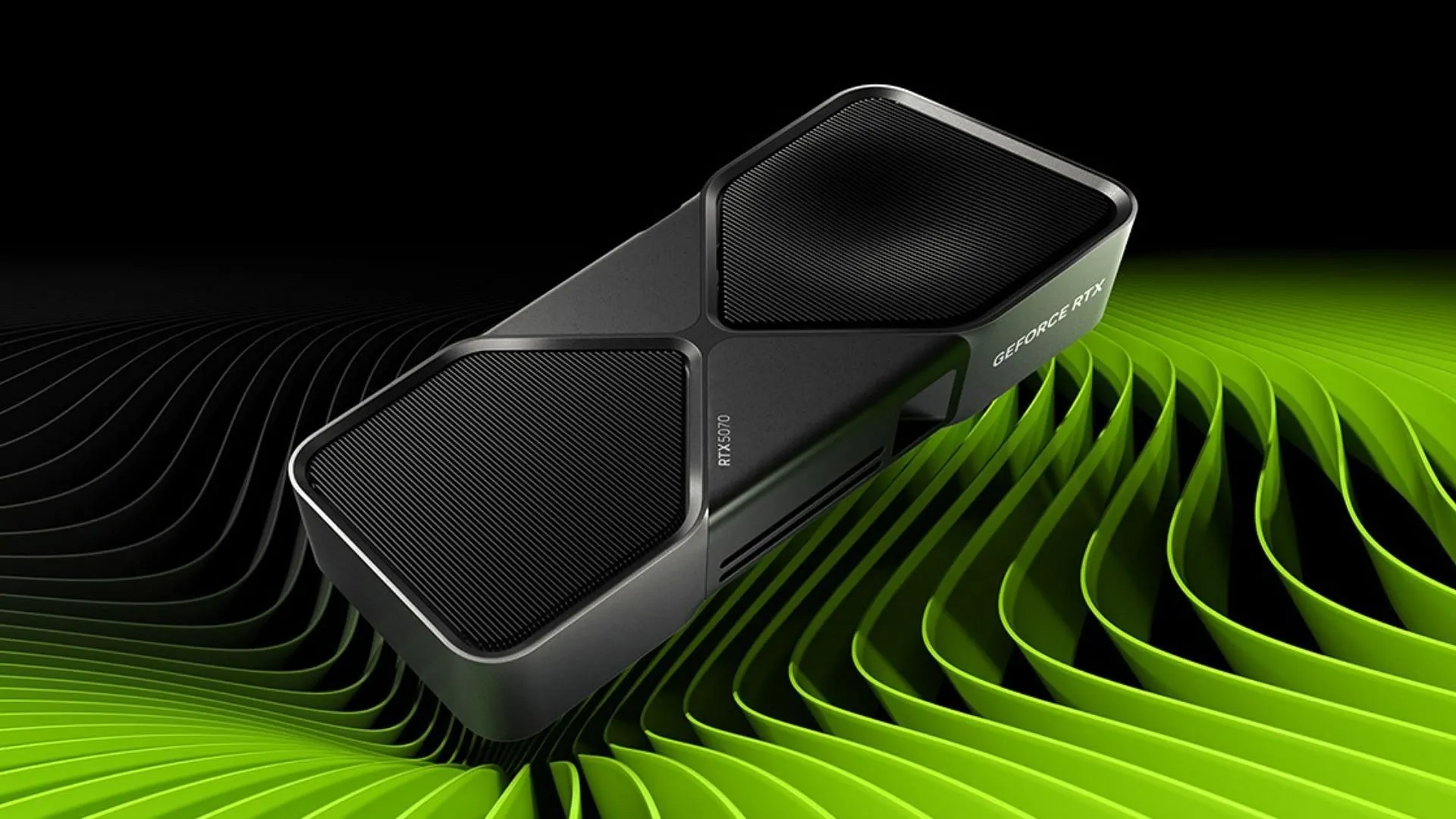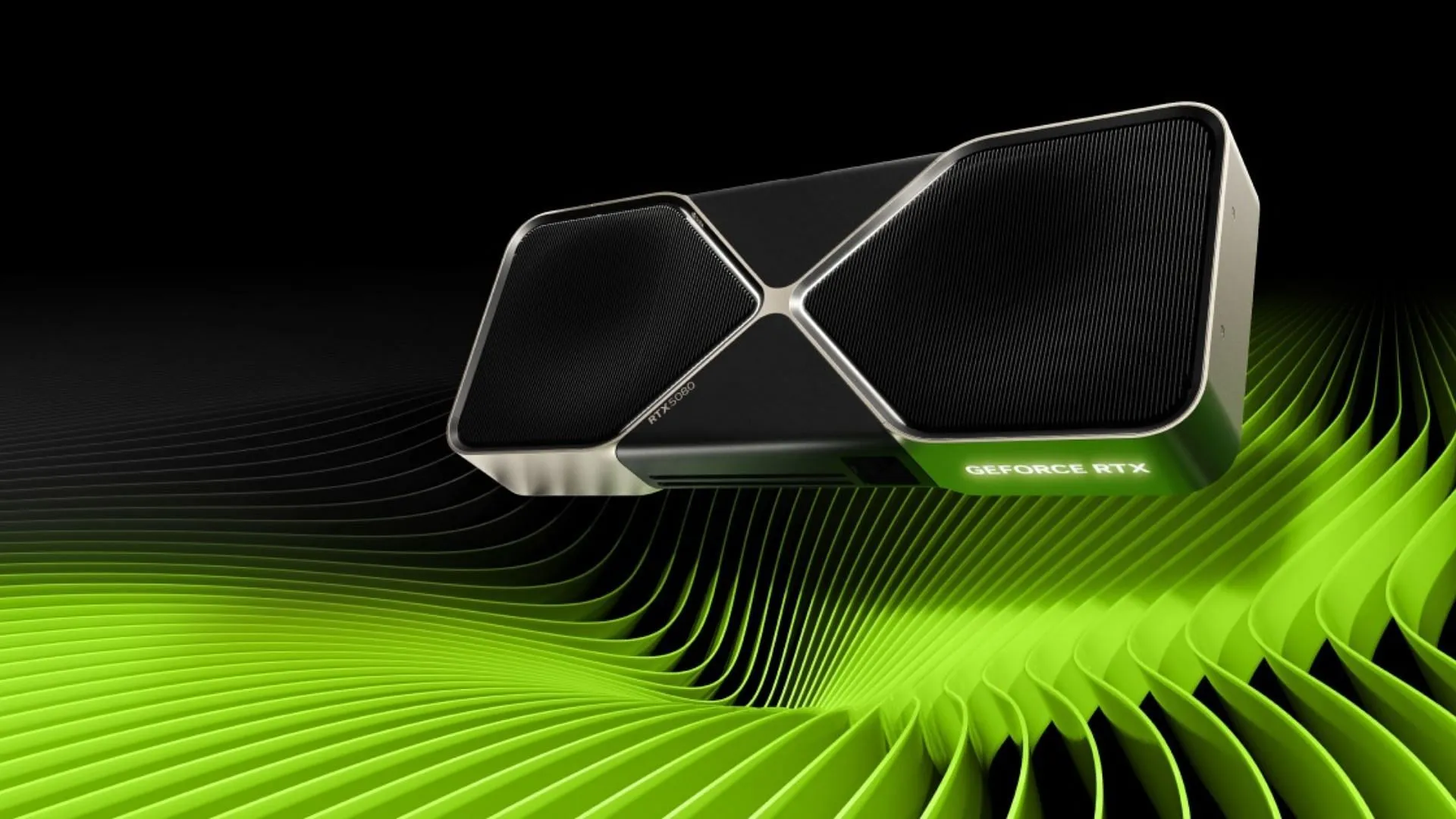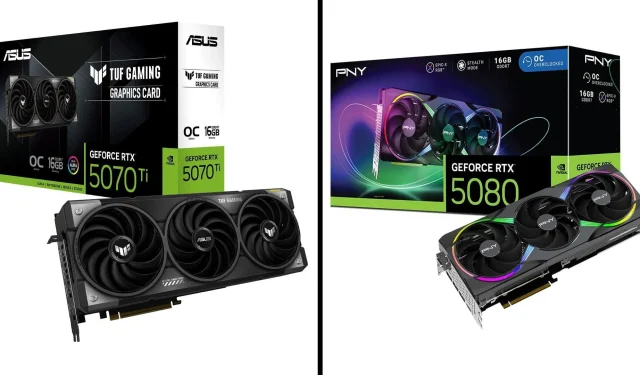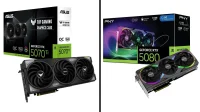Nvidia has truly outdone itself with the release of the RTX 5070 Ti and RTX 5080 graphics cards, both of which are designed with serious gamers in mind. These high-performance GPUs provide exceptional rendering capabilities and are among the most powerful graphics cards available today. Gamers can easily run the latest titles at impressive resolutions while maintaining optimal visual settings. This leads us to a crucial question: which of these two premium GPUs should you consider investing in? Your choice will largely depend on your individual gaming needs and preferences.
In this analysis, we will explore the functional attributes and performance metrics of both graphics cards. This includes a detailed specifications comparison followed by practical performance evaluations across various popular video games.
Performance Comparisons of the Nvidia RTX 5070 Ti and RTX 5080

Both the RTX 5070 Ti and RTX 5080 utilize Nvidia’s latest Blackwell architecture. This design enhances gaming experiences at 1440p and 4K resolutions and integrates advanced AI-based upscaling technologies, such as Transformer-based Super Resolution and Multi-Frame Generation. The primary distinction between these models lies in their hardware specifications and corresponding price points.
Specifications Overview
Despite their similarities, the RTX 5070 Ti and RTX 5080 feature subtle differences in specifications. Both utilize the GB206 graphics chip but the 5070 Ti is a more economical variant, offering fewer cores and slightly optimized power consumption.
Each card is equipped with 16 GB of the latest GDDR7 VRAM, which may limit its adaptability for future applications, especially for the pricier $999 RTX 5080. Notably, while the VRAM on the RTX 5080 boasts a 7% increase in speed, many enthusiasts feel that Nvidia missed the chance to fully leverage the abilities of the higher tier GPU.
| Specification | Nvidia RTX 5070 Ti | Nvidia RTX 5080 |
|---|---|---|
| GPU Architecture | Blackwell 2.0 | Blackwell 2.0 |
| Process Node | 5nm (TSMC) | 5nm (TSMC) |
| CUDA Cores | 8,960 | 10,752 |
| SM Count | 70 | 84 |
| Base Clock | 2295 MHz | 2295 MHz |
| Boost Clock | 2452 MHz | 2617 MHz |
| Memory Size | 16GB GDDR7 | 16GB GDDR7 |
| Memory Bus | 256-bit | 256-bit |
| Memory Bandwidth | 896 GB/s | 960 GB/s |
| Tensor Cores | 280 | 336 |
| RT Cores | 70 | 84 |
| L2 Cache | 64 MB | 64 MB |
| Pixel Rate | 235.4 GPixel/s | 293.1 GPixel/s |
| Texture Rate | 686.6 GTexel/s | 879.3 GTexel/s |
| TDP (Power Draw) | 300W | 360W |
| Recommended PSU | 700W | 750W |
| Power Connector | 1x 16-pin | 1x 16-pin |
| Ports | 1x HDMI 2.1b, 3x DP 2.1b | 1x HDMI 2.1b, 3x DP 2.1b |
| DirectX Support | 12 Ultimate (12_2) | 12 Ultimate (12_2) |
| Release Date | February 2025 | January 2025 |
From a pricing perspective, the RTX 5070 Ti is positioned as the more affordable choice at an MSRP of $749, while the RTX 5080 carries an entry price of $999. However, actual retail prices for third-party custom variants often fluctuate significantly from these suggested figures.
Performance Insights

When it comes to performance, a graphic card’s capabilities are paramount for gamers. With the RTX 5070 Ti and RTX 5080 sharing similar specifications, analyzing their performance metrics is critical. However, substantial differences in frame rates are not anticipated.
Performance testing conducted at 4K resolution produced the following results, as gathered from Testing Games:
| Nvidia RTX 5070 Ti | Nvidia RTX 5080 | |
| Hogwarts Legacy | 36 FPS | 42 FPS |
| Hogwarts Legacy DLSS 4 FG 4x | 120 FPS | 135 FPS |
| Ghost of Tsushima | 67 FPS | 74 FPS |
| Alan Wake 2 | 29 FPS | 35 FPS |
| Alan Wake 2 DLSS 4 FG 4x | 101 FPS | 116 FPS |
| Cyberpunk 2077 | 54 FPS | 63 FPS |
| Horizon Forbidden West | 71 FPS | 81 FPS |
| God of War: Ragnarok | 94 FPS | 108 FPS |
| S.T.A.L.K.E.R. 2 | 64 FPS | 72 FPS |
| Silent Hill 2 | 51 FPS | 58 FPS |
| Forza Horizon 5 | 112 FPS | 126 FPS |
| Kingdom Come Deliverance 2 | 54 FPS | 62 FPS |
Overall, the RTX 5080 exhibits about a 14.5% increase in gaming performance compared to the 5070 Ti, with this advantage appearing fairly consistent across most games. An exception is Alan Wake 2, where the RTX 5080 delivers a striking 20% improvement in frame rates due to advancements in cutting-edge technologies, including mesh shaders and advanced ray tracing.
Choosing between the RTX 5070 Ti and RTX 5080 may present challenges. While the 5070 Ti offers a slightly lower frame rate, its $250 price difference makes it significantly more accessible to a broader range of gamers. On the other hand, if your budget allows, opting for the RTX 5080 could offer compelling benefits, though the lack of additional VRAM diminishes its appeal somewhat.
In conclusion, both cards serve distinct purposes and markets. Evaluating your gaming needs and financial flexibility will guide you to the best choice between these imposing GPUs.


